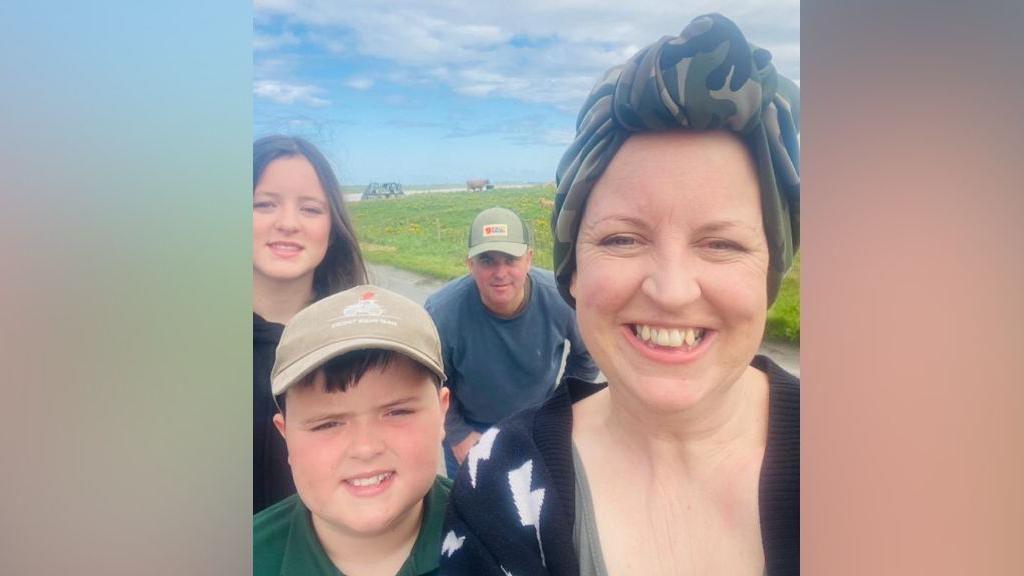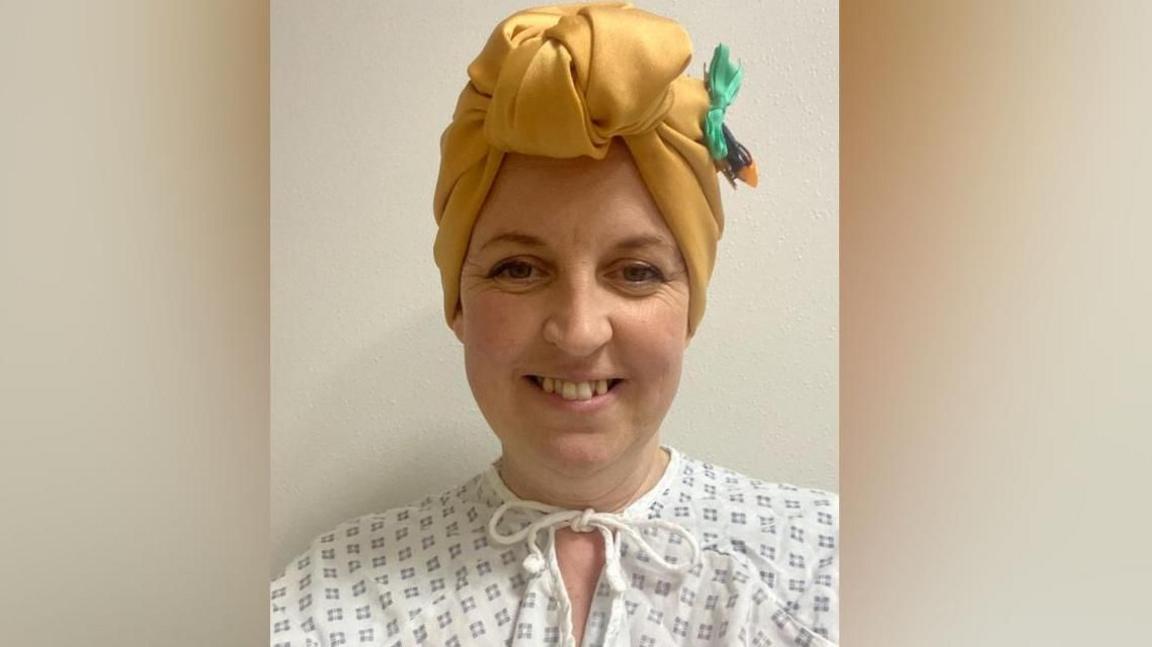Welsh woman unable to have cancer op in England

Lowri Mai Williams was diagnosed with cancer at the age of 42
- Published
A cancer patient was told in her hospital bed in England that she could not undergo surgery because she lived in Wales.
Lowri Mai Williams, 42, from Powys, had been referred to hospital in the Midlands for her cancer treatment in 2023.
But it was not until the last moment that she was informed the operation had been cancelled.
NHS England and Powys Teaching Health Board said they could not comment on individual cases.
"She [a doctor] said 'you live in Wales, don't you? Well, we can't continue with the treatment because of the budget'," said Ms Williams.
"I was just sitting there thinking 'this is like a nightmare'."
It is the responsibility of any local health board to ensure there are arrangements for people to receive treatment, whether in England or Wales.
Powys Educational Health Board said it aimed to "ensure the best possible care" for all patients but would not comment on individual cases.
Wales hospital waiting times hit new record high
- Published18 July 2024
Diabetic patient used social media to find insulin
- Published15 July 2024
Mental health tragedy lessons not learned - family
- Published11 July 2024
Diagnosed with breast cancer in March 2023, Ms Williams, from Moelfre - close to the English border - received chemotherapy that May before travelling to the Princess Royal Hospital in Telford for surgery to remove lymph nodes.
"We went in the morning and didn't eat on Sunday night as part of the preparation," she told the BBC Radio Cymru podcast 1 mewn 2.
"I arrived there, gown on. They used marker pens on my body. We were ready to go."
But then a doctor came to sit on her bed and said that the operation would not take place.

Ms Williams says treatment is a "postcode lottery"
It was not to be the only cancellation.
Another doctor, due to carry out a mastectomy in Birmingham weeks later, said there was no funding for the surgery as she was from Wales.
"You think, they knew I lived in Wales from the start (but) that's how they worded it - because of the fact that I live in Wales.
"Something is churning in you then. I started crying and thinking I'm not sure how to react."
Ms Williams added no other option was offered to her, such as paying privately for the treatment.
Ms Williams said she a disagreement between her health board and the health trust in England over which pays for the treatment was responsible for her experience.
"Everything comes down to money at the end of the day, which is unfortunate," she said.
"This politics at the top of the Powys health board should have been resolved beforehand."

It took more than 70 phone calls to resume Ms Williams' treatment
It took Ms Williams and her partner three desperate days and "73 phone calls" to resolve the situation and Powys health board arranged to continue her treatment.
She said she was aware of two other women living close to the Wales-England border who have had similar experiences.
"It's something that is a problem when it goes outside of Wales," she said.
"It's almost like a postcode lottery - it's serious."
NHS England refuse to comment on individual cases but said it investigated all concerns and complaints.
The Welsh government said: “We are unable to comment on individual cases, but it is the responsibility of Powys Teaching Health Board to ensure there are arrangements in place for their residents to receive treatment, whether that is in Wales or England.”